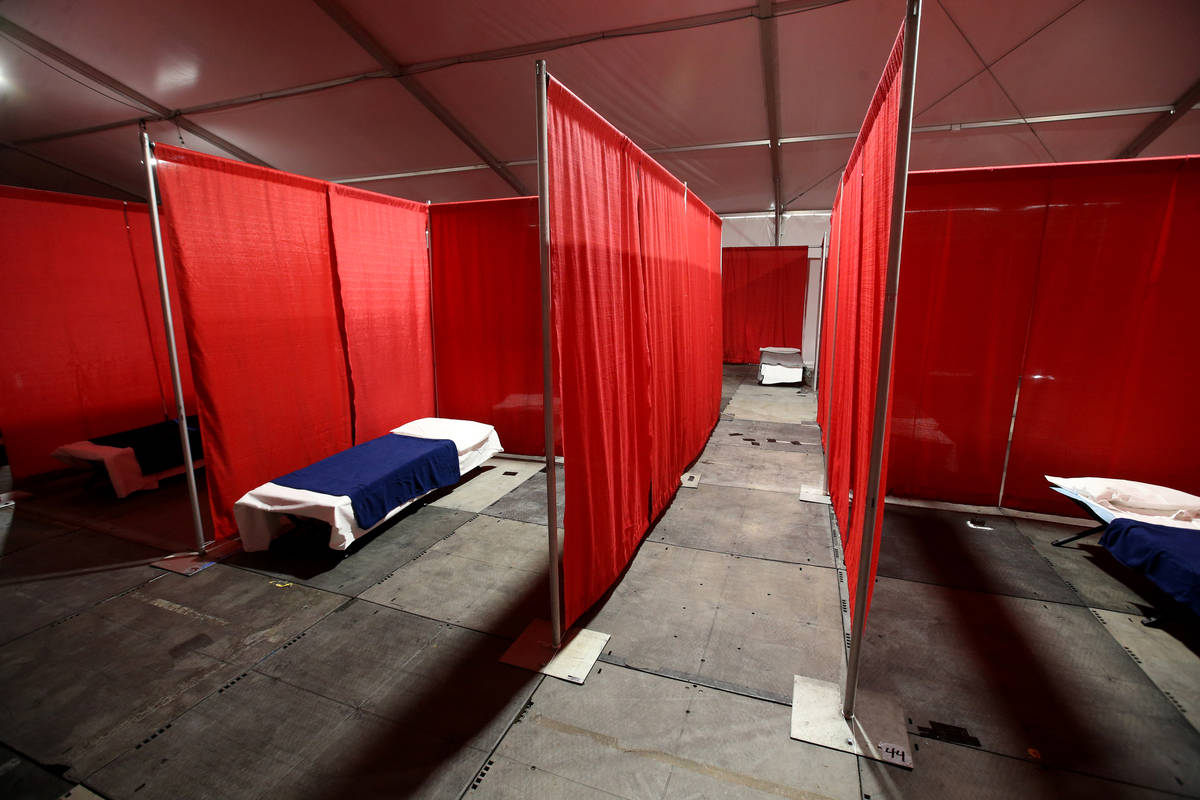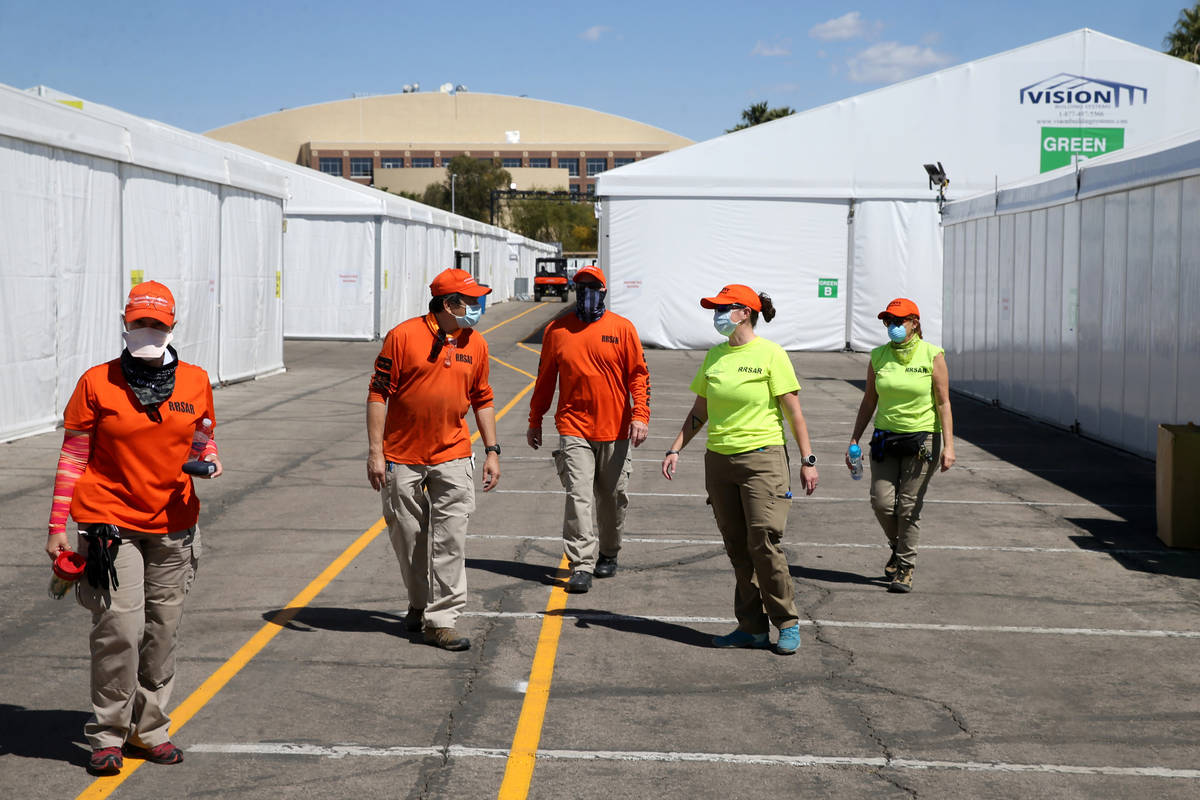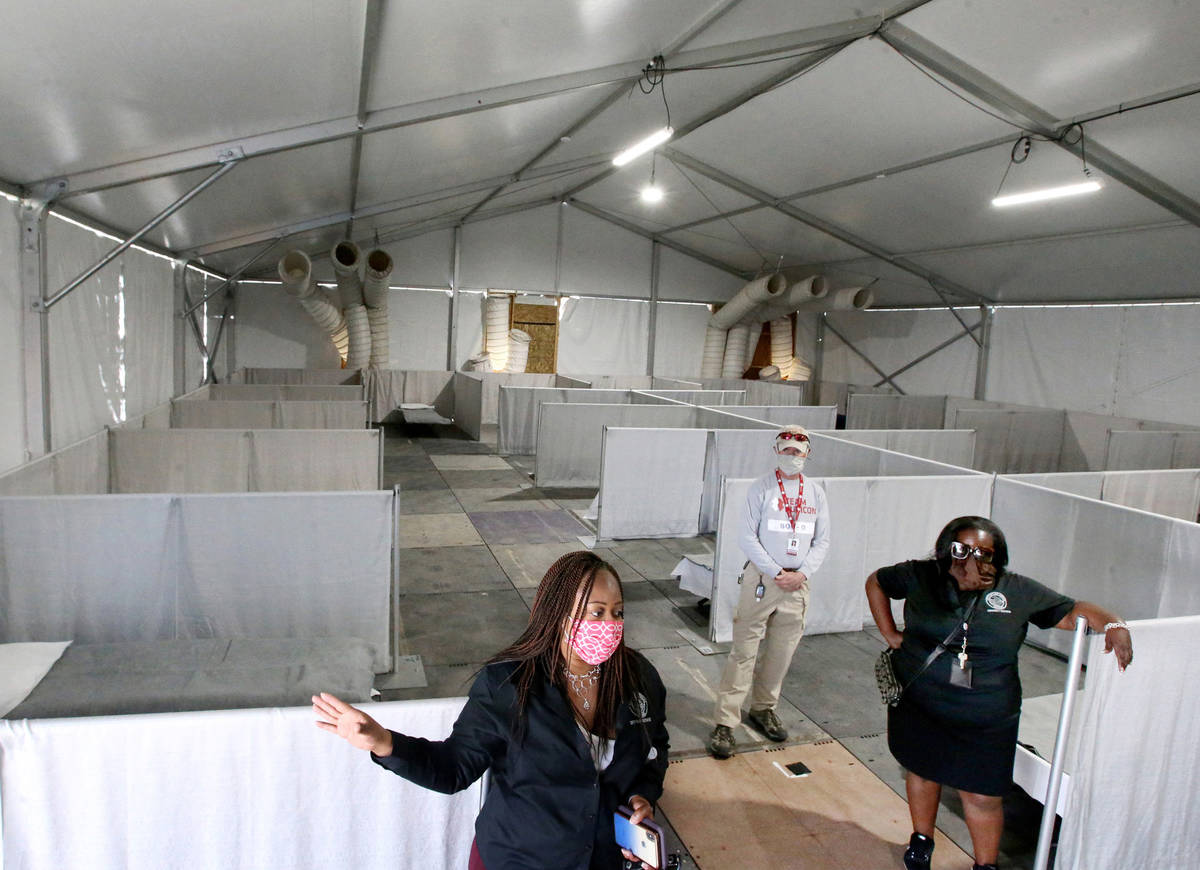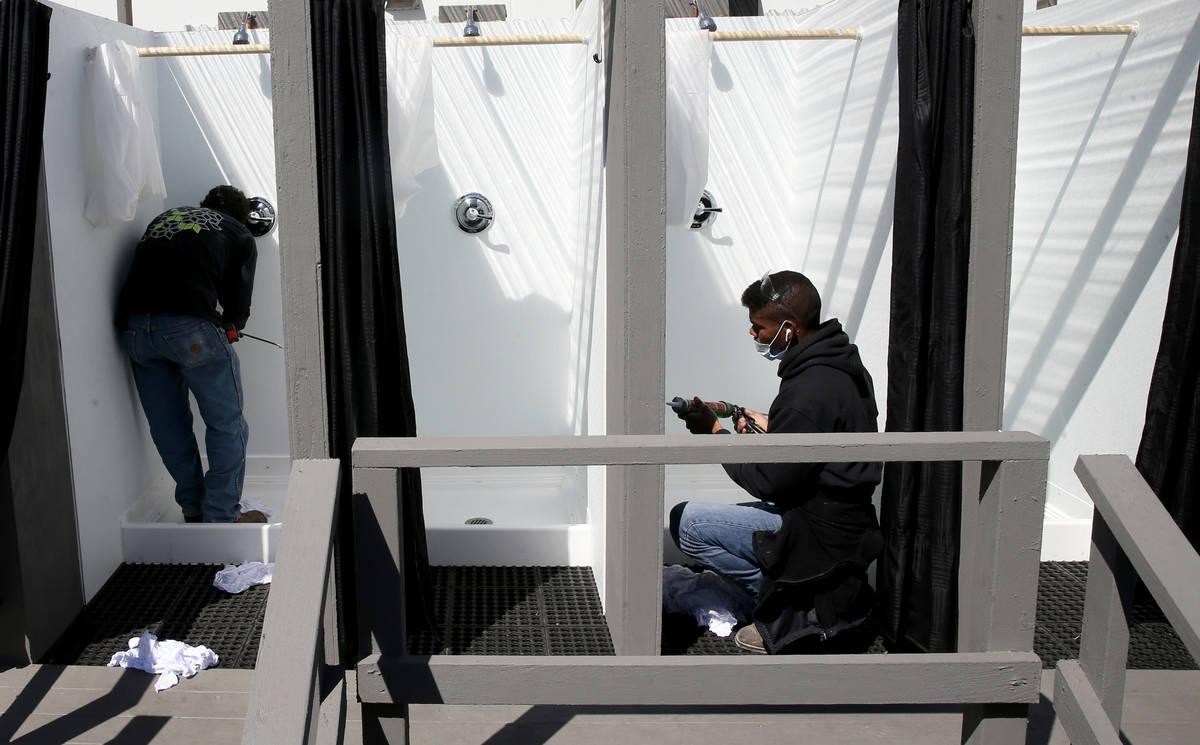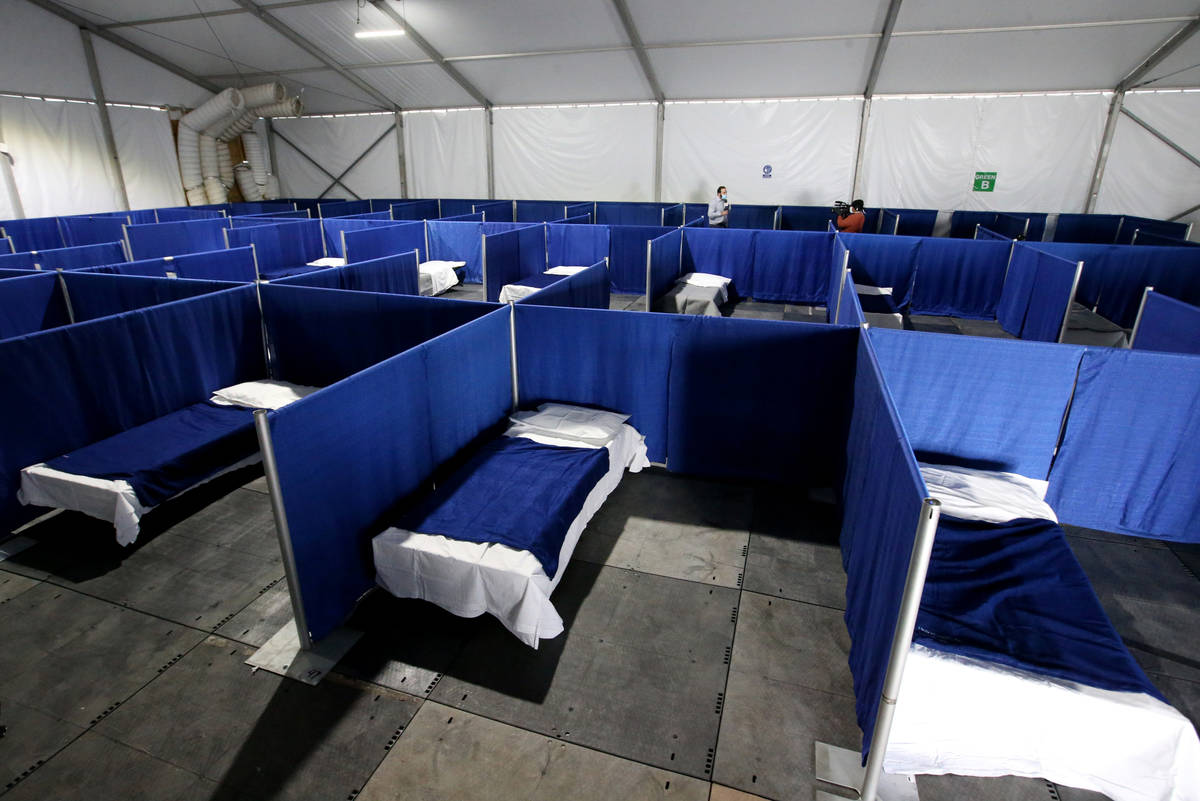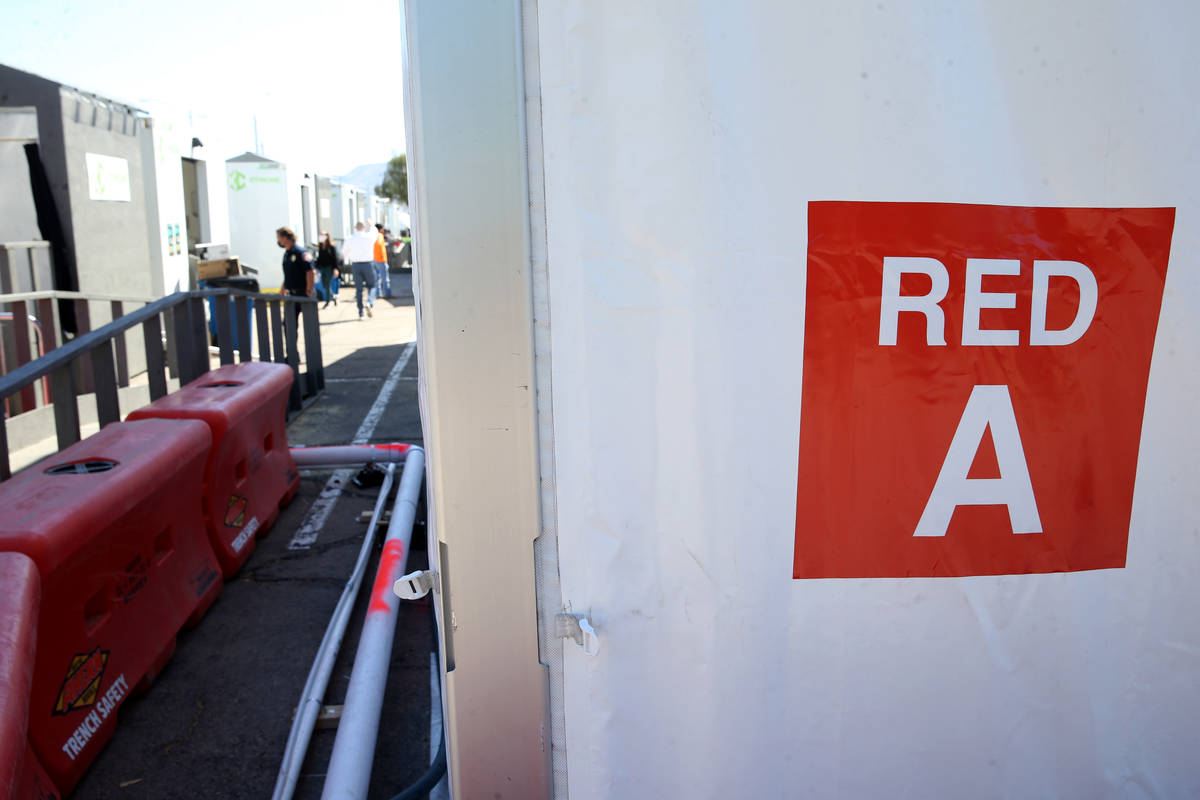New homeless quarantine complex opens at Cashman Center in Las Vegas
Clark County and the city of Las Vegas’ ISO-Q (Isolation and Quarantine) Complex at Cashman Center for the homeless began accepting patients on Monday night.
The more than $8 million facility was built in just two weeks to provide beds for homeless patients affected by the coronavirus.
“This is the city and county coming together to make sure that those folks who don’t have a home have somewhere to recover,” commission Chairwoman Marilyn Kirkpatrick said.
The complex, off the intersection of Washington Avenue and Las Vegas Boulevard, is believed to be the first in the nation to cater specifically to the homeless, officials said.
Scattered tents at the complex form a makeshift “observational treatment center” with enough cots for up to 500 patients. Each tent has air conditioning and heating, power, lights and 10-by-10-foot rooms separated with curtains.
Those who need to be quarantined because they have been exposed to COVID-19 are in the green tents, while people who have tested positive will stay in red tents. People with symptoms who have not yet tested positive will stay in yellow tents.
Kirkpatrick said “about four homeless people” who have tested positive for COVID-19 were housed by the county in one of 150 other isolation units obtained from existing housing providers and were “back on track” as of last week.
The city and county expect the facility to operate for at least 90 days. The complex will be staffed by medical professionals, city staff and volunteers, who are still being recruited.
The interior of Cashman is being reserved for possible hospital overflow, officials said.
Not for walk-ins
The facility is not a walk-on campus. Patients will be taken to the complex by ambulance after being referred by a hospital, shelter or the Southern Nevada Health District. Those who are seriously ill and in need of a ventilator or other advanced treatment will be taken to area hospitals instead.
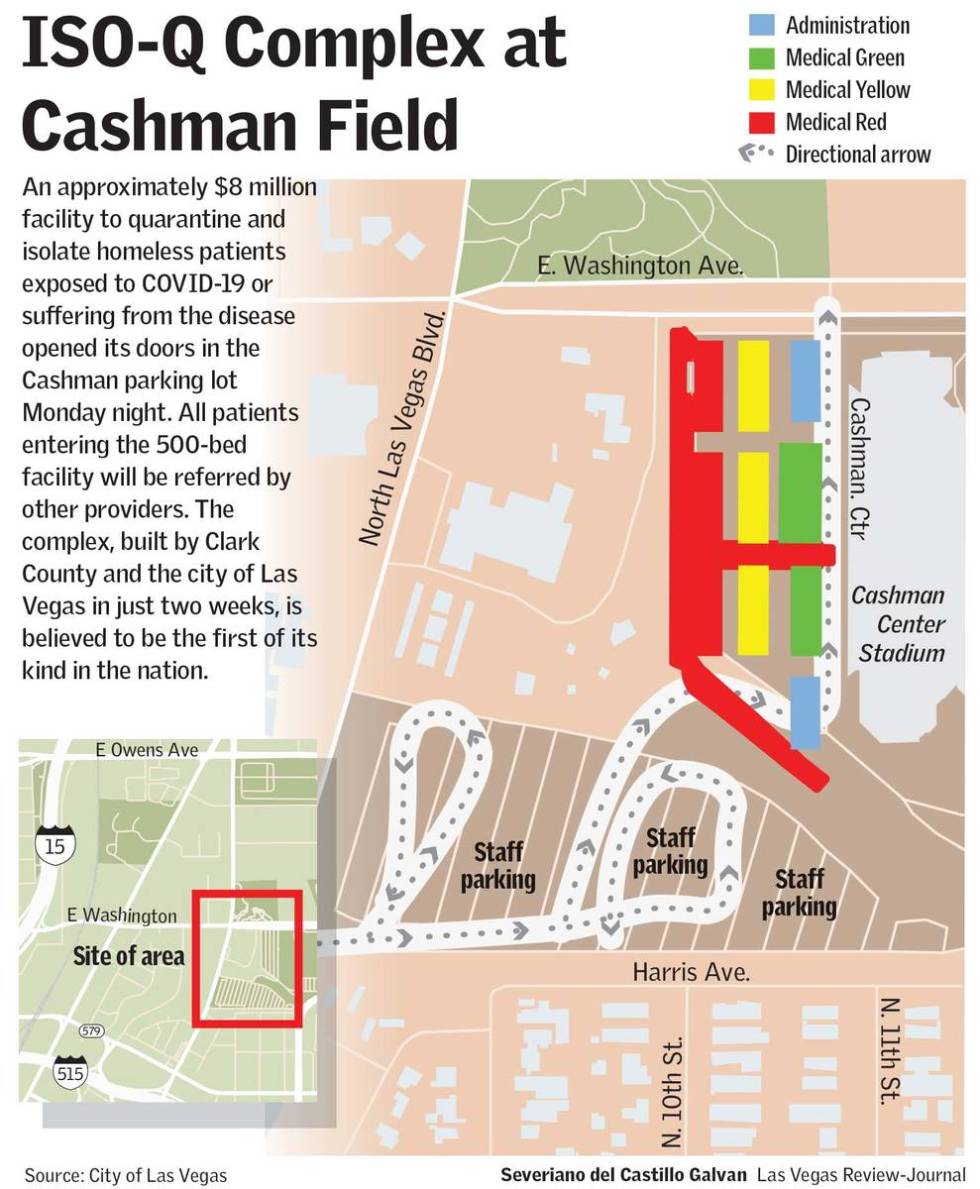
At the Cashman complex, staff will use a pinprick test to determine within 15 minutes if a patient has developed antibodies toward the virus, said Dr. Marc O Griofa, the medical director at the facility. Right now, the city has about 120 of those tests.
“We have one of the most at-risk, vulnerable populations in the city here,” O Griofa said. “This way, we’ll get a really good indication of the prevalence of this virus within the homeless community.”
When patients are screened, social workers will be looking to address housing needs and provide case management for the patients when they are discharged.
The city’s Courtyard Homeless Resource Center, the Salvation Army and Catholic Charities of Southern Nevada also will be screening all guests for symptoms of the virus before they enter.
Tim Burch, the county’s administrator of human services, said the county invested more than $6 million to build and operate the facility for 90 days, but anticipates most of it will be reimbursed by the Federal Emergency Management Agency. The city spent more than $2.8 million. including providing fencing, WiFi, water and sewer connections for the restrooms and showers, which are also separated for those in quarantine and isolation.
“This is 100 percent a COVID-19 response,” Burch said. “We’ve been very intentional about signage. … We’re taking cross-contamination very seriously. We want staff and clients to know exactly where they are and where they should be.”
City of Las Vegas Assistant Fire Chief Jon Stevenson, who is serving as the medical branch director at the complex, said workers had enough protective equipment for a “robust start” but there will be a need for more. Anyone who has tested positive must not show symptoms for three days before they can leave.
Several people were expected to arrive by ambulance Monday night. Those patients have been staying at Catholic Charities’ 10-bed quarantine area for guests who show symptoms overnight, Stevenson said.
“Where our efforts are going to have the most reward is identifying the potentially sick people at the shelters and getting them out of there as quickly as we can,” he said. “It’ll spread too easily among the population, and we don’t want to give the coronavirus a 4,000 person head start in infecting the community.”
Contact Briana Erickson atberickson@reviewjournal.com or 702-387-5244. Follow @ByBrianaE on Twitter.



